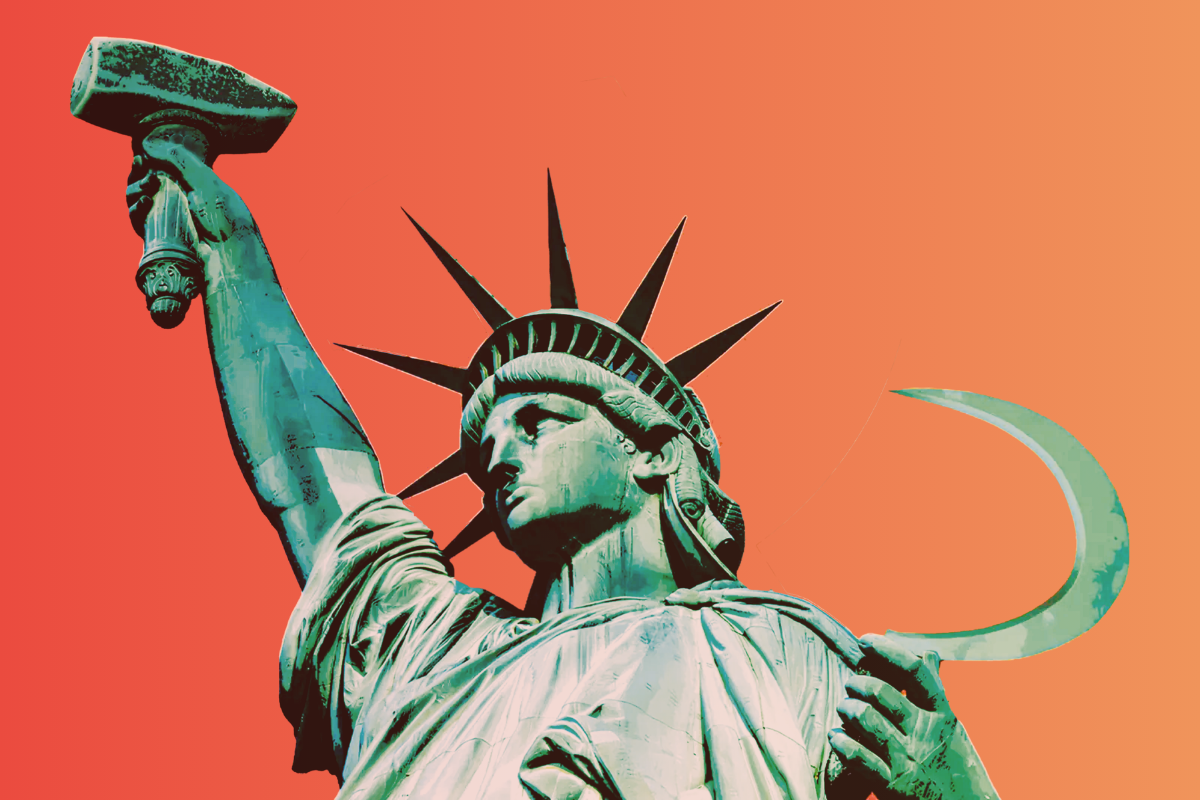In this epoch of capitalist crisis, it is only a short step from an amorphous striving for basic rights and modest reforms to drawing fully revolutionary conclusions. From the Greek referendum to Bernie Sanders’ campaign for president of the USA, it is clear that a process of radicalisation is taking place across the world, as people look for a genuine alternative to the status quo.
In this epoch of capitalist crisis, it is only a short step from an amorphous striving for basic rights and modest reforms to drawing fully revolutionary conclusions. The rising interest in socialism is a worldwide phenomenon, with different versions flowing from each country’s traditions and history. Here in the US we are experiencing our own variant, distorted through the prism of a country with an anticommunist past and without a traditional mass workers’ party.
The Greek workers and youth, hammered and humiliated by years of crisis and austerity, have risen up to say “Oxi!” to the continued predations of capital. In moving and inspiring scenes reminiscent of every great revolutionary movement, Syntagma Square was awash with emotional, electric humanity on the eve and aftermath of the July 5 referendum. This was nothing less than the proverbial entry of the masses onto the stage of history—the moment when ordinary men and women seize their destiny in their own hands—the beginning of the beginning of a revolution.
In the USA, people’s minds are also being dramatically transformed, spearheaded by the youth. In 1996, only 27% of Americans supported marriage equality. In less than 20 years, that number has more than doubled, and the Supreme Court has been forced to recognize the public will. In South Carolina, mass pressure and outrage at the relentless racist attacks have compelled the State Senate to support removing the Confederate flag from the state capitol—even though, according to the governor, not a single corporate CEO ever objected to its presence.
Although consciousness is rapidly catching up with objective reality, it was thrown far backwards over the last thirty years. As a result, the awakening of the US working class will inevitably be prolonged and contradictory. Although there has been a slight uptick in strikes in recent months, the revival of the US working class has not yet been expressed in a focused way through the unions, as a result of the rotten pro-capitalist policies of the current labor leadership. Instead, workers are seeking a way out through movements such as Occupy, Black Lives Matter, and the fight for $15.
However, in this epoch of capitalist crisis, it is only a short step from an amorphous striving for basic rights and modest reforms to drawing fully revolutionary conclusions. The rising interest in socialism is a worldwide phenomenon, with different versions flowing from each country’s traditions and history: Jeremy Corbyn’s bid for leader of the Labour Party in Britain; Pablo Iglesias and the rise of Podemos in Spain; Tsipras and Syriza’s election in Greece. Here in the US we are experiencing our own variant, distorted through the prism of a country with an anticommunist past and without a traditional mass workers’ party.
For lack of a viable alternative, and with the labor leaders not offering a class-independent way forward, many workers find themselves voting “Democrat” when election season rolls around. Bernie Sanders, the independent Senator from Vermont, is running as a Democrat for that party’s presidential nomination. His call for a political revolution and for democratic socialism resonates with millions of Americans disappointed with Obama’s false promise of change. After years of anemic “recovery,” austerity, and outrageous inequality, his railing against the “billionaire class” has struck a chord from Minneapolis to Maine.
As Marxists, we understand that most people first entering political life will tend to look for the path of least resistance. But we also understand that socialism will not be won through one election, or by electing a single individual. And it certainly will not come about through a capitalist party. This is why Marxists cannot foment any illusions whatsoever in the Democratic Party. To do so would make us responsible for its actions and policies. The Democrats cannot serve both the workers and the capitalists. As a party bought and paid for by corporate America, it will always do its bidding in the final analysis. We cannot lose our principled political bearings simply because we are put under pressure by those with honest illusions in a capitalist politician. Even if Sanders were to win the Democratic nomination or the presidency itself, without a mass base and independent party of the working class fighting to go beyond the limits of capitalism, his would be a presidency of crisis, of managing capitalist austerity, savaged by the press, and sabotaged by big business.
Despite these dangers and limitations, Sanders’ campaign legitimizes socialism in a way perhaps never before seen in the US. We must therefore be friendly but firm as millions of workers and youth pass through the continued experience of the “School of the Democrats.” The months ahead will provide us with many opportunities to explain our program, perspectives, and the need for a labor party based on the unions, armed with a socialist program.
Had he run as an independent, Sanders could have established the foundations for such a party. Perhaps he will do so in the future. Only time will tell. In the meantime, we must continue to “patiently explain,” confident in the knowledge that consciousness changes and history is on our side. A recent poll found that “only” 47% of Americans would elect a socialist president. In a three-way race between an independent socialist candidate, a Republican, and a Democrat, 47% would be more than enough to carry the day. In 1860, Abraham Lincoln was elected with just 39.7% of the vote. He went on to wage a revolutionary war against slavery, laying the basis for the untrammelled rule of capital, which at that time was still a historically progressive force.
It is one of history’s rich ironies that the ongoing debate around the Confederate flag is one of the only references being made to the titanic battle between those who favored chattel slavery to make their profits, and those who to this day profit from wage slavery. It should come as no surprise that the bourgeois media and politicians have said very little about the US Civil War on the sesquicentennial of that bloody but necessary conflict. The American capitalist class is so decrepit and fearful of anything even hinting at revolution or class war that they dare not celebrate their own revolutionary past. The reason for this is clear. 150 years after the fall of the slavocracy, their system has hit a brick wall, and the economic preconditions for a different kind of revolution are now present. The socialist revolution will unleash humanity’s potential and guarantee a world of abundance for all. It will uproot the inequality and discrimination upon which capitalism is based, and with it, the power and privileges of the tiny minority that currently rules the roost.
In 1857, at a time when 4 million slaves were still in chains, Frederick Douglass explained the “birds and the bees” of the class struggle with unmatched eloquence and clarity: “Let me give you a word of the philosophy of reform. The whole history of the progress of human liberty shows that all concessions yet made to her august claims have been born of earnest struggle. The conflict has been exciting, agitating, all-absorbing, and for the time being, putting all other tumults to silence. It must do this or it does nothing. If there is no struggle there is no progress. Those who profess to favor freedom and yet deprecate agitation are men who want crops without plowing up the ground; they want rain without thunder and lightning. They want the ocean without the awful roar of its many waters.
“This struggle may be a moral one, or it may be a physical one, and it may be both moral and physical, but it must be a struggle. Power concedes nothing without a demand. It never did and it never will. Find out just what any people will quietly submit to and you have found out the exact measure of injustice and wrong which will be imposed upon them, and these will continue till they are resisted with either words or blows, or with both. The limits of tyrants are prescribed by the endurance of those whom they oppress. In the light of these ideas, Negroes will be hunted at the North and held and flogged at the South so long as they submit to those devilish outrages and make no resistance, either moral or physical. Men may not get all they pay for in this world, but they must certainly pay for all they get. If we ever get free from the oppressions and wrongs heaped upon us, we must pay for their removal. We must do this by labor, by suffering, by sacrifice, and if needs be, by our lives and the lives of others.”
We have little to add to these words. At the beginning of the 21st century, the struggle against all forms of exploitation and oppression is the struggle for socialism. Without a clear lead, without a mass revolutionary or even reformist socialist tradition in the United States, we can expect plenty of disorientation and many failed efforts. Fortunately, when it comes to the world socialist revolution, you only have to win once. In the age of social media, ideas and examples spread like wildfire. From Athens to Charleston, the workers of the world are collectively learning and waking up to the realization that we have nothing to lose but our chains, and have a world to win.






